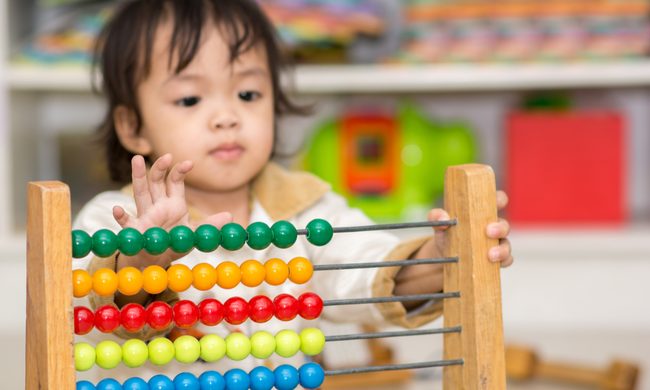We’ve all heard the rhyme about no more teachers and books on the last day of school. Of course, kids are excited by the prospect of long summer days without school and homework. There’s camp, vacations, outings and swimming with friends to look forward to, but there’s also the dreaded summer slide. No, it’s not a super swim slide at a cool amusement park. Summer slide refers to the academic progress lost during the extended break from school during the summer months. The concept is not a new one. It’s been a bone of contention for educators since the late 90s. It’s the primary reason high school and middle school students have summer assignments and elementary students usually have a packet to complete. Even public libraries have hopped on board by promoting summer reading with contests and challenges. If you want to prevent summer slide in your kids when school finally lets out for summer, it’s not as difficult as you think and it doesn’t need to involve tutors, arguments, long hours and math camp (unless of course your child is into that). We have some low-stress ways for you to keep summer slide at bay and make sure your kiddos are ready when back-to-school time rolls back around.

Read, read, read
It shouldn’t come as a surprise that reading is key in keeping summer slide away. Reading is an essential component of all educational subjects, even mathematics. In order to keep the reading fluency and comprehension progress your children made during the academic year, continue to read during the summer. Readers make better writers. So, make it a point to have your kids read for at least half an hour or more every day. This can be more challenging with some tweens and teens, but it’s necessary. Kids old and young are more apt to read if they’re interested in the subject matter. Remember comic books and graphic novels count, too.
Writing
Writing is another essential element of academic success. Students need to be able to express thoughts coherently in writing as they climb the educational ladder. Like reading, when the skill is not used, writing progress slips, which is why some teachers assign journals during the summer. Journaling is a wonderful method to keep kids’ writing skills intact, and it can also be a stress and anxiety reliever for tweens and teens. Whether it’s a vacation, camp or tournament journal, encourage your child to keep writing over the summer. If they’re not into journaling, try other methods like writing letters to relatives, local seniors or soldiers stationed overseas.

Cooking
An informal and fun way to sneak in those math and reading skills is by getting kids involved in the kitchen. Cooking requires using reading to follow recipe directions, as well as math skills when it comes to measuring out the ingredients, especially if you’re doubling it. Try and have the kids find and help you with a recipe at least once a week. Give each child in the family a different day so the cooking lesson can be tailored to the specific age. Cooking is a great family-friendly activity that’s also an important life skill. If you have teens heading to college soon, a summer spent learning to cook keeps summer slide at bay and is time well spent because they’ll be able to whip up more than ramen noodles.
Backyard science experiments
Can you really fry an egg on the sidewalk when the temperature rises? Why not try and find out by making a solar oven? Science experiments are an interesting and exciting way for younger kids and tweens to keep their school skills sharp. You don’t have to turn your backyard into a chemistry lab. Instead, aim for trying at least one simple science experiment each week. You can even have kids Google experiments they want to try or check out a book with cool summer science experiments. Another way to keep kids tuned into science is with a telescope. Set up an inexpensive telescope in the yard or on the deck on a clear summer night, and let the kids enjoy checking out the stars and constellations up close.
Every day math
Math is the one subject that typically shows a larger decline for many students over the summer. It’s not surprising because if you think about it, math is challenging for a lot of kids, especially when they hit the upper elementary and middle school grades. If your child already works with a math tutor, don’t put the sessions on hold over the summer. With younger kids, you can play math games like addition, subtraction or multiplication bingo. Getting older kids and teens to think about math can be a battle. Cooking helps, as does playing video games like Minecraft, which utilizes math and engineering skills to create worlds. Other ways to bring math into the summer revolve around getting involved in everyday activities using mathematical applications such as estimating grocery bills, balancing checkbooks, figuring out sales tax on items or tipping at restaurants.
Children and teens work hard during the school year and do need a break, but stepping away from all educational activities during the summer is a bad idea. Summer slide, or the loss of academic proficiency, means your child is always starting the next school year behind the eight ball. Instead, keep the academic progress going forward by making sure your kids do educational activities over the summer. Reading things they’re interested in, keeping a journal, cooking, doing science experiments and even playing the Price is Right in the grocery store are ways for academic progress to stay on point.


